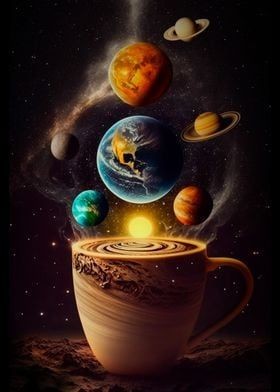Space: A Wild Frontier of Wonders
Space is an astonishing expanse that captures our imagination and curiosity. It is a wild frontier filled with wonders that range from breathtaking celestial phenomena to the mysteries of distant galaxies. In this article, we will explore the awe-inspiring features of space, the scientific discoveries that illuminate our understanding, and the endless possibilities that await us in the cosmos.
The Vastness of Space
An Expansive Universe
The universe is unimaginably vast, spanning approximately 93 billion light-years in diameter. Within this immense space, billions of galaxies, each containing billions of stars, exist. This staggering scale challenges our understanding of size and distance, reminding us of the cosmic wilderness that surrounds us.
The Observable Universe
While we can only observe a fraction of the universe, the observable cosmos still offers countless wonders. Telescopes and space missions continue to reveal new phenomena, expanding our knowledge and appreciation for the vastness beyond our planet.
Celestial Wonders
Nebulae: Stellar Nurseries
Nebulae are one of the most beautiful phenomena in space. These massive clouds of gas and dust serve as stellar nurseries where new stars are born. The vibrant colors of nebulae, such as the iconic Orion Nebula, showcase the incredible processes of star formation.
Black Holes: Cosmic Enigmas
Black holes represent some of the most mysterious objects in the universe. Formed from the remnants of massive stars, they possess gravitational pulls so strong that not even light can escape. The study of black holes challenges our understanding of physics and continues to inspire scientific inquiry.
Supernovae: Explosive Endings
When massive stars exhaust their fuel, they explode in a spectacular event known as a supernova. These cataclysmic explosions not only create stunning cosmic displays but also distribute essential elements throughout the universe, contributing to the formation of new stars and planets.
The Mysteries of the Cosmos
Dark Matter and Dark Energy
Despite comprising about 95% of the universe, dark matter and dark energy remain elusive mysteries. Dark matter, which doesn’t emit light, is believed to hold galaxies together, while dark energy is thought to drive the universe's accelerated expansion. Understanding these phenomena is one of the greatest challenges in modern astrophysics.
Exoplanets: Worlds Beyond
The discovery of exoplanets—planets outside our solar system—has opened new avenues for exploration. Thousands of exoplanets have been identified, some of which reside in the habitable zone of their stars, sparking questions about the potential for life beyond Earth.
The Role of Space Exploration
Pioneering Missions
Human curiosity has driven us to explore space through pioneering missions. From the Voyager spacecraft that ventured into interstellar space to the Mars rovers that explore our neighboring planet, each mission has expanded our knowledge of the cosmos.
The Importance of Telescopes
Ground-based and space telescopes, such as the Hubble Space Telescope and the James Webb Space Telescope, have revolutionized our understanding of the universe. These instruments allow us to observe distant galaxies, track cosmic events, and deepen our comprehension of fundamental questions about our existence.
The Future of Space Exploration
Ambitious Goals
As we look to the future, space exploration continues to be a priority for scientists and enthusiasts alike. Plans for missions to Mars, lunar bases, and even the exploration of asteroids and comets promise to unveil even more wonders of the cosmos.
The Search for Life
One of the most profound questions we seek to answer is whether we are alone in the universe. Missions focused on astrobiology aim to find signs of life, whether microbial or intelligent, on other planets and moons, driving humanity’s quest for knowledge forward.
Conclusion
Space is indeed a wild frontier filled with wonders that ignite our curiosity and inspire our imagination. From stunning celestial phenomena to profound mysteries, the universe invites us to explore and discover. As we continue our journey through space, we not only seek answers to fundamental questions about existence but also foster a deeper appreciation for the beauty and complexity of the cosmos. Whether through scientific exploration or artistic representation, the wildness of space will forever captivate us, urging us to look up and dream of the stars.






